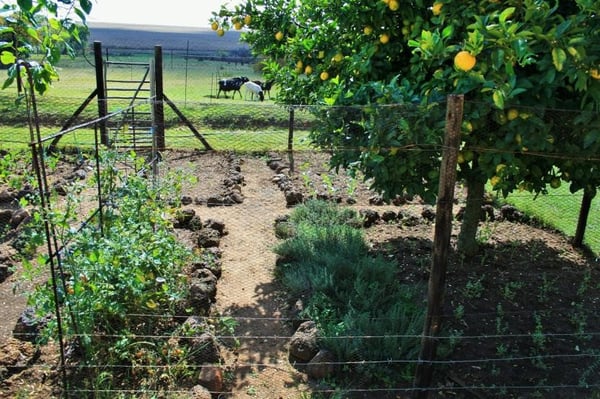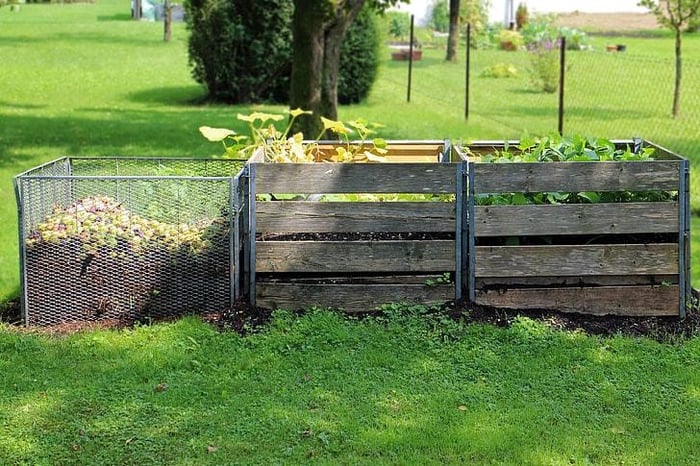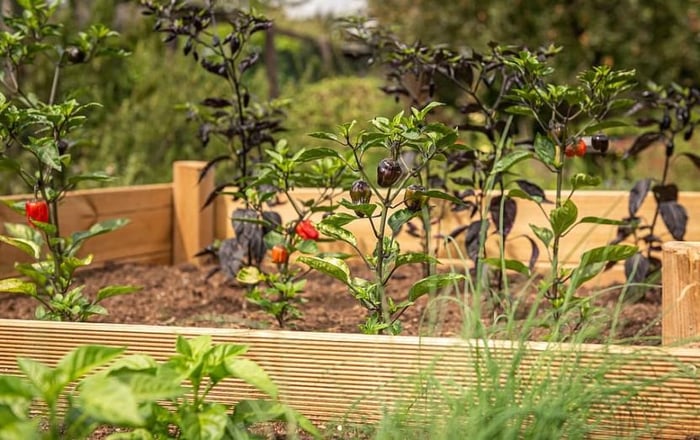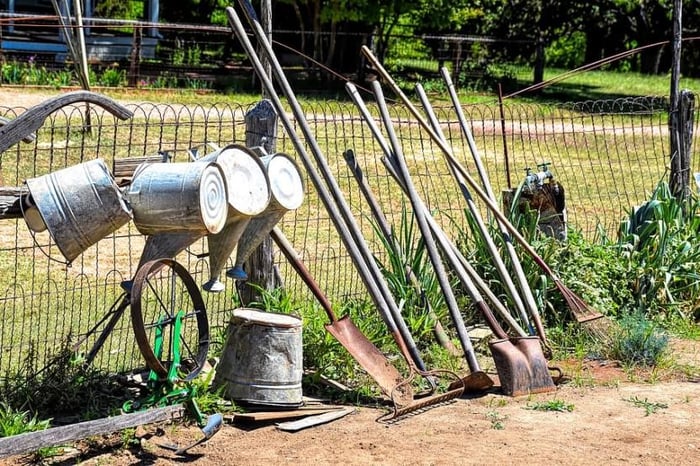Planting a plastic-free garden
by Frances Black

When planting a garden, the last thing any environmentally aware person wants to do is contribute to the pollution of the earth. But that's exactly what many well-intentioned people do. Because of the amount of plastic present in gardening tools and supplies, we're unconsciously adding to the problem -- and the problem is not trivial. By some estimates, 350,000 pounds of horticultural plastic enters the waste stream every year in the United States alone.
Plastic waste is dangerous to human health and to the health of the plants and animals we eat. But when you know better, you do better. So don't worry. There are several easy ways to reduce plastic use in your garden. Here are a few of them.
Make your own fertilizer and mulch. Both DIY solutions eliminate plastic containers the commercial products come in. They also reduce pollution because you're recycling products already in your house.
Composting is an easy way to make your own fertilizer (in a non-plastic bin, of course). Wood ash from a stove is also a great soil amendment. You can make homemade fertilizer from banana peels or eggshells, and with nutrient-rich plants, such as comfrey or nettle, you can yield great fertilizer teas.
To make your own mulch, you can use some of the compost you have, or you can apply shredded leaves and grass clippings directly to your beds. Pine needles are another great source of backyard mulch, particularly for acid-loving plants such as raspberries.
Plant swap, buy bare root, or start seeds from scratch. It's hard to come home with plants from the garden center without bringing home a plastic pot. Not so when you share divided perennials with friends, neighbors, or at plant swap events. You can also reduce your waste stream and your garden's plastic footprint by starting your own seeds in homemade pots made of egg cartons, newspaper, or toilet paper tubes. If you must acquire transplants commercially, those sold bare root are encased in simple sleeves rather than earth-filled pots.
Build environmentally conscious raised beds. Raised garden beds are fantastic for water retention, moderating soil temperatures, eliminating weeds, and lessening soil erosion. But these ecological advantages will be offset if you frame your beds in cheap plastic. A far better solution is to build beds of non-treated wood. A bed of high-quality cedar is just plain beautiful, but many types of hardwood will do. It's not hard to build your own raised beds, and you can grow just about anything in them. And the best part? You can use recycled newspaper or cardboard as a base layer.
If you prefer to garden in containers rather than in raised beds, make sure you opt for ceramic, wood, terracotta, or metal -- all of which can be found at less than retail in flea markets.
Switch out plastic weed barriers for organic recycled ones. For many talented gardeners, recycled newspaper or cardboard covered with mulch is the preferred weed barrier. Not only does this eliminate the use of plastic sheeting or woven fabric, but these organic materials also help enrich the soil as they decompose.
For those who prefer cardboard, you can often find large boxes to break down at bicycle shops or appliance stores, where owners may be more than happy to give them to you. If you have old 100% cotton bed sheets that are too tattered
Choose durable non-plastic tools and share them with friends and neighbors. Plastic tools are less expensive than those made of wood and forged steel, but they don't last long -- which means they end up in the trash -- and they are a false economy (cheaper now, but cost you more in the long run). Wear cotton gardening gloves, which can be recycled when they wear out. If your garden is small, you may be able to get by with just a metal watering can and eliminate the plastic hose. Creating a tool share program in your neighborhood can reduce the cost of gardening and help build community.
When it comes to recycling and protecting our environment, every little bit counts. Growing a plastic-free garden delivers beauty and delicious fresh vegetables while minimizing the negative impact of this soul-sustaining backyard pastime.
Frances Black is a writer and gardener. She was born in Michigan and has planted gardens everywhere she's lived, from New Mexico to New England.



